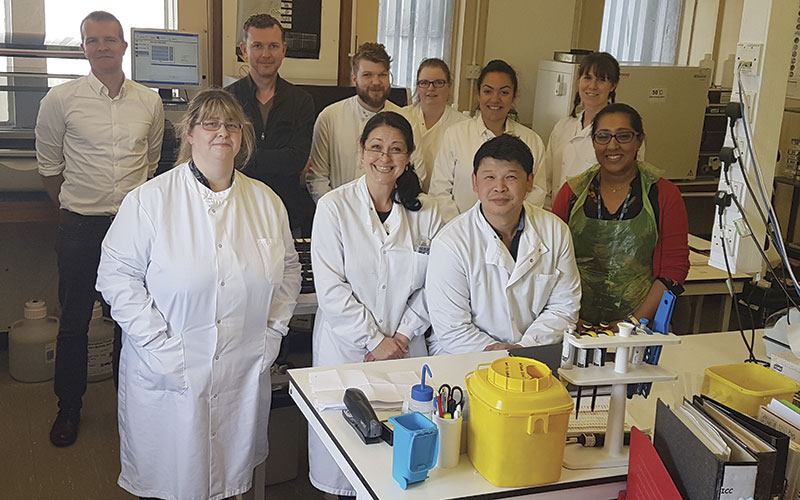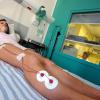Sharon Forrest, Immunocytochemistry and Molecular Pathology Services Manager, gives a tour of her lab at the Royal Liverpool University Hospital.

Liverpool Clinical Laboratories (LCL) is one of the largest providers of pathology services in the North West, jointly owned by Royal Liverpool and Broadgreen University Hospitals NHS Trust and Aintree University Hospital NHS Foundation Trust.
Our vision is to pioneer new technologies and ways of working that better inform decisions about a person’s health, by providing greater accessibility to clinical diagnostic services. We employ over 550 staff across four locations, providing services 24 hours a day and process in excess of 15 million tests each year.
My immunocytochemistry and molecular pathology lab is based in the Royal Liverpool University Hospital, which is one of the largest and busiest hospital trusts in the North West. The majority of our work includes the investigation of breast pathology, GI and hepatobiliary malignancies, renal native and transplant services, head and neck tumours, a sarcoma service, a dermatopathology service, a gynaecologic sample service and urology and ophthalmic services.
We also provide a number of regional testing services, the haematological oncology diagnostic service and the thoracic service certainly ensure that we never have a dull day.
The immunocytochemistry service stains in excess of 100,000 slides per annum and has a repertoire of approximately 200 different primary antibodies. Staining is largely delivered using automated platforms although immunofluorescence staining on renal and skin biopsy samples is still conducted as a manual technique.
We use chromogenic in situ hybridisation technologies for the identification of EBV and HPV and the service was one of the first labs in the UK to offer a PD-L1 testing protocol as a guide to the use of new generation immune modulating drugs in the treatment of lung cancer and we are very proud of this achievement.
Our molecular pathology service offers a range of nucleic acid-based tests to aid in the diagnosis and management of patients with solid and haematological tumours and we use paraffin wax tissue scrolls and blood samples to perform PCR-based fragment analysis to detect TCR/IgH gene rearrangements in B and T-cell neoplasms and in coeliac disease. We use RT-PCR to detect EGFR gene mutation in non-small cell lung cancer (NSCLC) and use immunocytochemistry and fluorescence in situ hybridisation
(FISH) to detect genetic aberrations in NSCLC, breast cancer and synovial sarcoma.
The lab also participates in the 100K Genomes Project, as part of the NW Coast Genomics Medicine Centre performing DNA extraction on blood and tissue samples from cancer patients for whole genome sequencing.
Although life in such a busy city centre laboratory can be challenging, my team is always ready to rise to the challenge and play their part in ensuring that Liverpool is seen as a world class centre for science and innovation.
Sharon Forrest will be at speaking at the IBMS Congress on Monday 25 September. Her talk is called “Calamity Stains” and is about how to troubleshoot when histological stains go wrong.



